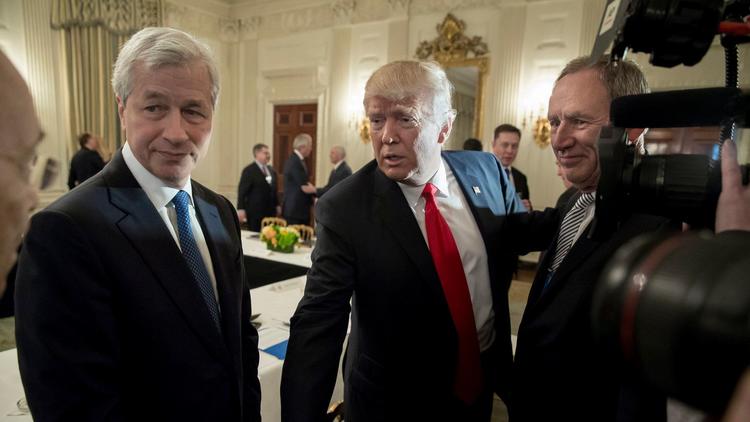In his annual letter to shareholders, JPMorgan Chase CEO Jamie Dimon, whose former reputation as one of banking’s “good guys” was more a referendum on his sordid peers than a compliment to himself, defended the Trump Administration’s ardor for deregulation with the following dubious claim: “Essentially, too big to fail has been solved — taxpayers will not pay if a bank fails.”
His underlying assumption is that bankers will behave rationally because there will (potentially) be serious penalties should they grab for short-term sacks of cash in a manner that may eventually imperil their firms. This is a failure to understand psychology as well as economics.
Most of the poor behavior on Wall Street that led to the collapse of 2008 was done with very little thought for the future, that nebulous thing. Now mattered far more than then. Humans will always be, to some degree, irrational and exuberant, especially when money is involved. Smart regulations are drawn and enforced to save us from ourselves.
· · ·
Speaking of regulation: In his latest Financial Times column, Tim Harford writes of an oft-overlooked aspect of the challenges facing contemporary workers. Outsourcing, robotics and contracting aren’t the only threats to our positions. The uber-consolidation within American business sectors has made for “superstar firms,” behemoths that can operate with brute efficiency, a development that can be devastating for employees. It’s a problem that won’t likely solve itself.
An excerpt:
Superstar firms, instead, seem to be the cause. The story is simple. These businesses are highly productive and achieve more with less. Because of this profitability, more of the value added by the company flows to shareholders and less to workers. And what happens in these groups will tend to be reflected in the economy as a whole, because superstar firms have an increasingly important role.
All this poses a headache for policymakers — assuming policymakers can pay attention to the issue for long enough. The policy response required is subtle: after all, the growth of innovative, productive companies is welcome. It’s the unintended consequences of that growth that pose problems.
Those consequences are not easy to predict, but here are two possibilities. Either the US economy ends up like Amazon, or it ends up like Microsoft. The Amazon future is one of relentless competition, a paradise for consumers but a nightmare for workers, and with the ever-present risk that dominant businesses will snuff out competition as the mood takes them.
The Microsoft future epitomises the economist John Hicks’s quip: “the best of all monopoly profits is a quiet life”. Microsoft in the 1990s became famous as a once-brilliant company that decided to pull up the drawbridge, locking in consumers and locking out competitors.
In either scenario ordinary people lose out, unless they can enjoy returns from capital as well as returns from working.•

